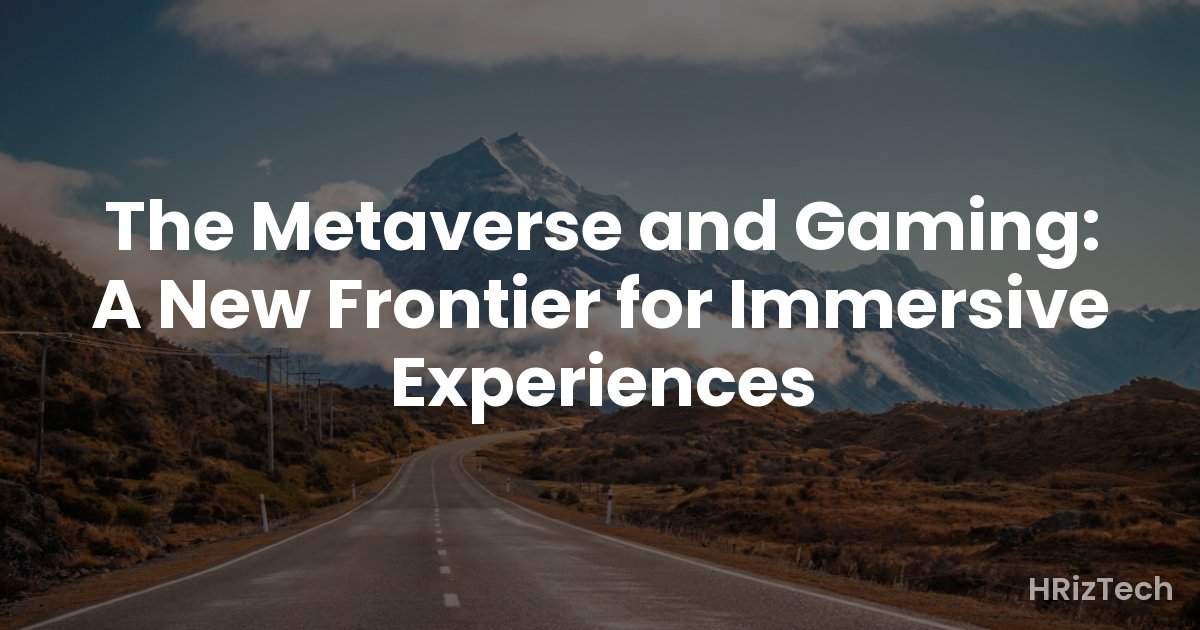The Metaverse and Gaming: A New Frontier for Immersive Experiences

The Metaverse and Gaming: A New Frontier for Immersive Experiences
- The metaverse offers unprecedented levels of immersion in gaming.
- VR and AR technologies are key drivers of this immersive evolution.
- New gaming models and monetization strategies are emerging in the metaverse.
- Challenges remain, including accessibility and technical limitations.
- The future of gaming is intertwined with the development of the metaverse.
Beyond Pixels: Entering the Immersive World of Metaverse Gaming
For years, gamers have been pushing the boundaries of interactive entertainment, demanding ever more realistic and engaging experiences. The metaverse, with its promise of persistent, shared virtual worlds, represents a quantum leap forward in this quest. No longer are we confined to flat screens; instead, we're stepping into virtual spaces, interacting with others in ways previously unimaginable. This isn't just an incremental improvement; it's a fundamental shift in how we experience and interact with games.
VR and AR: The Technological Pillars of Metaverse Gaming
The metaverse's immersive capabilities are largely fueled by advancements in Virtual Reality (VR) and Augmented Reality (AR) technologies. VR headsets offer complete immersion, transporting players into fully realized virtual environments. Imagine stepping into your favorite fantasy world, feeling the weight of your virtual sword, and truly experiencing the thrill of battle. AR, on the other hand, overlays digital elements onto the real world, creating blended experiences that blur the lines between the physical and the digital. Imagine playing a Pokémon-style game, but with the creatures appearing in your living room!
VR's Immersive Powerhouse
VR's impact on gaming is undeniable. High-fidelity graphics, realistic physics engines, and haptic feedback devices create a sense of presence that traditional gaming simply can't match. This level of immersion fosters deeper engagement, more emotional connection, and more meaningful interactions with both the game world and other players.
AR's Blending of Worlds
AR offers a different, yet equally compelling, approach. By seamlessly integrating digital elements into the real world, AR games create unique opportunities for exploration, discovery, and social interaction. Imagine playing a scavenger hunt where virtual clues lead you to physical locations, or collaborating with friends in a shared AR environment to solve puzzles.
New Gaming Models and Monetization Strategies
The metaverse is also reshaping the economics of gaming. Traditional game models are being challenged by new approaches centered around ownership, community, and participation. Players can now own virtual assets, such as land, clothing, or in-game items, creating new opportunities for monetization and investment. Decentralized autonomous organizations (DAOs) are allowing players to have more control over the games they play, fostering community ownership and governance.
Play-to-Earn and the Metaverse Economy
The rise of "play-to-earn" (P2E) games represents a significant shift in the gaming landscape. In these games, players earn cryptocurrency or NFTs by participating in gameplay, creating a tangible economic incentive for engagement. This model has the potential to democratize access to gaming and create new opportunities for players around the world. However, it also presents challenges related to volatility, regulation, and sustainability.
Challenges and Opportunities: The Road Ahead
Despite the immense potential, the metaverse still faces significant hurdles. The cost of entry, including VR/AR hardware and high-speed internet access, remains a barrier for many. Technical limitations, such as latency and motion sickness in VR, also need to be addressed. Furthermore, concerns about data privacy, security, and the potential for addiction need careful consideration.
Accessibility and Inclusivity
Making the metaverse accessible to a wider audience is crucial for its long-term success. This requires addressing issues of affordability, accessibility for people with disabilities, and ensuring equitable access to technology across different demographics and geographical locations.
The Future of Gaming: A Metaverse Intertwined
The metaverse is not just a trend; it's a paradigm shift in how we experience digital worlds. The integration of VR and AR technologies, coupled with innovative gaming models and monetization strategies, is poised to revolutionize the gaming industry. While challenges remain, the potential for creating truly immersive, engaging, and socially interactive gaming experiences is undeniable. The future of gaming and the metaverse are inextricably linked, promising a future where the lines between the physical and digital worlds continue to blur.
Comments
No comments yet. Be the first to comment!